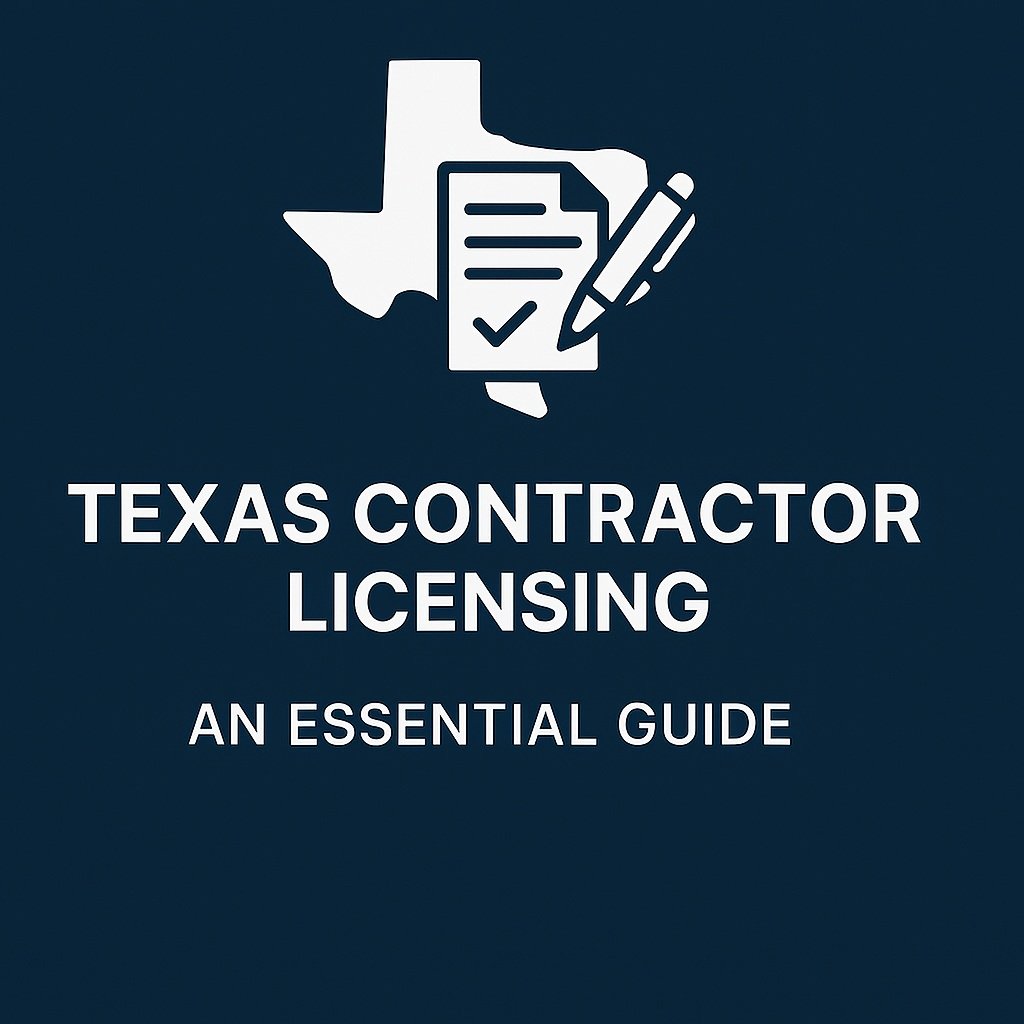Understanding Texas’s approach to contractor licensing is important for anyone offering skilled trade services in the state. While general contracting and handyman work often escape statewide licensing mandates, specialty trades such as HVAC, plumbing, and electrical require specific state-issued credentials. This guide breaks down who needs a license and dives into the detailed requirements for HVAC, plumbing, and electrical contractor licenses in Texas.
Who Needs a Contractor License in Texas?
Not all contractors in Texas must hold a state license. Handymen, general builders, and home improvement specialists can operate without a state-issued credential, though local city or county registrations may still apply.
Specialty trades, however, require licensing through the Texas Department of Licensing and Regulation (TDLR) or other state boards. If your business offers services in any of these areas, a state license is mandatory—even if you don’t formally call yourself a plumber, electrician, or HVAC technician:
- Heating, Ventilation & Air Conditioning (HVAC)
- Plumbing
- Electrical
- Fire sprinkler installation
- Well drilling
- Mold remediation
- Elevator and escalator installation
Municipalities like Austin, Houston, and Dallas often layer additional registration, permit, or inspection requirements on top of state licensing. Always check local regulations before beginning work.
HVAC Contractor License Details
Air conditioning and refrigeration (ACR) contracting in Texas is tightly regulated by TDLR. To obtain an HVAC contractor license, applicants must:
- Meet Experience Requirements
- 48 months of practical ACR work under a licensed contractor within the past 72 months, or
- Hold a valid ACR technician certification for at least 12 months plus 36 months of supervised experience within the past 48 months.
- Choose License Class & Endorsements
Available endorsements: Environmental Air Conditioning, Commercial Refrigeration, Process Cooling/Heating.
- Submit Application & Fee
- Complete the ACR Contractor License Application
- Pay $115 initial license fee
- Be at least 18 years old
- Pass Licensing Exam TDLR will verify experience and issue an exam eligibility notice. You must pass within one year of application.
- Provide Proof of Insurance Maintain commercial general liability insurance:
You may cover both classes under a single policy if it meets Class A minimums.
Once you’ve passed the exam and submitted your Certificate of Insurance, you’ll receive a one-year renewable HVAC contractor license.
Plumbing Contractor License Details
The Texas State Board of Plumbing Examiners (TSBPE) issues plumbing licenses at multiple levels:
- Master Plumber
- Must hold a valid Texas journeyman plumber license (or equivalent from another state) for ≥ 1 year
- High school diploma or GED
- U.S. citizenship or lawful work authorization
- Supervisory authority over all plumbing work
- Journeyman Plumber
- Must have a current Plumber’s Apprentice registration, Tradesman Plumber-Limited license, or valid journeyman/master from another state
- 8,000 hours of supervised plumbing experience
- High school diploma or GED
- U.S. citizenship or lawful work authorization
- Works under a Master Plumber’s general supervision
A Master Plumbing license covers unlimited plumbing—including sanitary drainage, water supply, storm drainage, and gas piping. A Journeyman license covers the same scope but requires direct Master oversight.
To apply, download the appropriate TSBPE application forms, gather experience verifications, proof of education, and citizenship/work authorization documents, then submit to the TSBPE headquarters in Austin along with the required fees.
Electrical Contractor License Details
Any non-exempt electrical work in Texas must be performed by a licensed electrical contractor through the TDLR electricians program. Key requirements include:
- Business Requirements
- Employ a licensed Master Electrician who supervises all electrical work
- Register the contracting business with the state
- Maintain proper liability insurance and, if applicable, workers’ compensation coverage
- Master Electrician Prerequisites
- 12,000 hours of on-the-job training as an apprentice and journeyman under a licensed Master
- Hold a Journeyman Electrician license for ≥ 2 years before applying for Master status
- Insurance Minimums for Contractors
- $300,000 per occurrence
- $600,000 aggregate (General Liability)
- $300,000 aggregate (Products & Completed Operations)
- Application & Exam
- Submit business and Master Electrician credentials via the TDLR online portal
- Pass the state-administered Electrical Contractor exam within one year of application approval
Once approved, the Electrical Contractor license is valid for one year and must be renewed with updated insurance certificates and any continuing education as mandated by TDLR.
Texas Contractor License Penalties
- Operating as an unlicensed specialized contractor is a Class C misdemeanor, punishable by fines, administrative fees, and possible jail time.
- HVAC contractors face Class A administrative penalties of $500–$1,000 for violations, and Class B penalties of $1,000–$3,500 plus up to one-year license suspension for serious infractions such as unlicensed activity or recordkeeping failures.
Conclusion
Texas’s decentralized licensing landscape means general contractors enjoy flexibility, but specialty trades face strict state oversight. Whether you plan to install HVAC systems, repipe a building, or rewire a home, securing the appropriate state license is non-negotiable. By following the guidelines above and consulting TDLR or TSBPE directly, you can ensure your business remains compliant, protected, and positioned for growth in one of the nation’s most dynamic construction markets.
Read Also-
Average Salary of Civil Engineer in USA – 2025
How to Become a Licensed Civil Contractor in USA?
Engineering, Procurement, and Construction (EPC) in Civil Engineering
Top 10 Civil Engineering Colleges in the USA – 2025
World’s Top 10 Tallest Buildings – 2025
External Resources-
https://www.usaplumbing.info/license/tx/texas-plumbing-license-requirements
